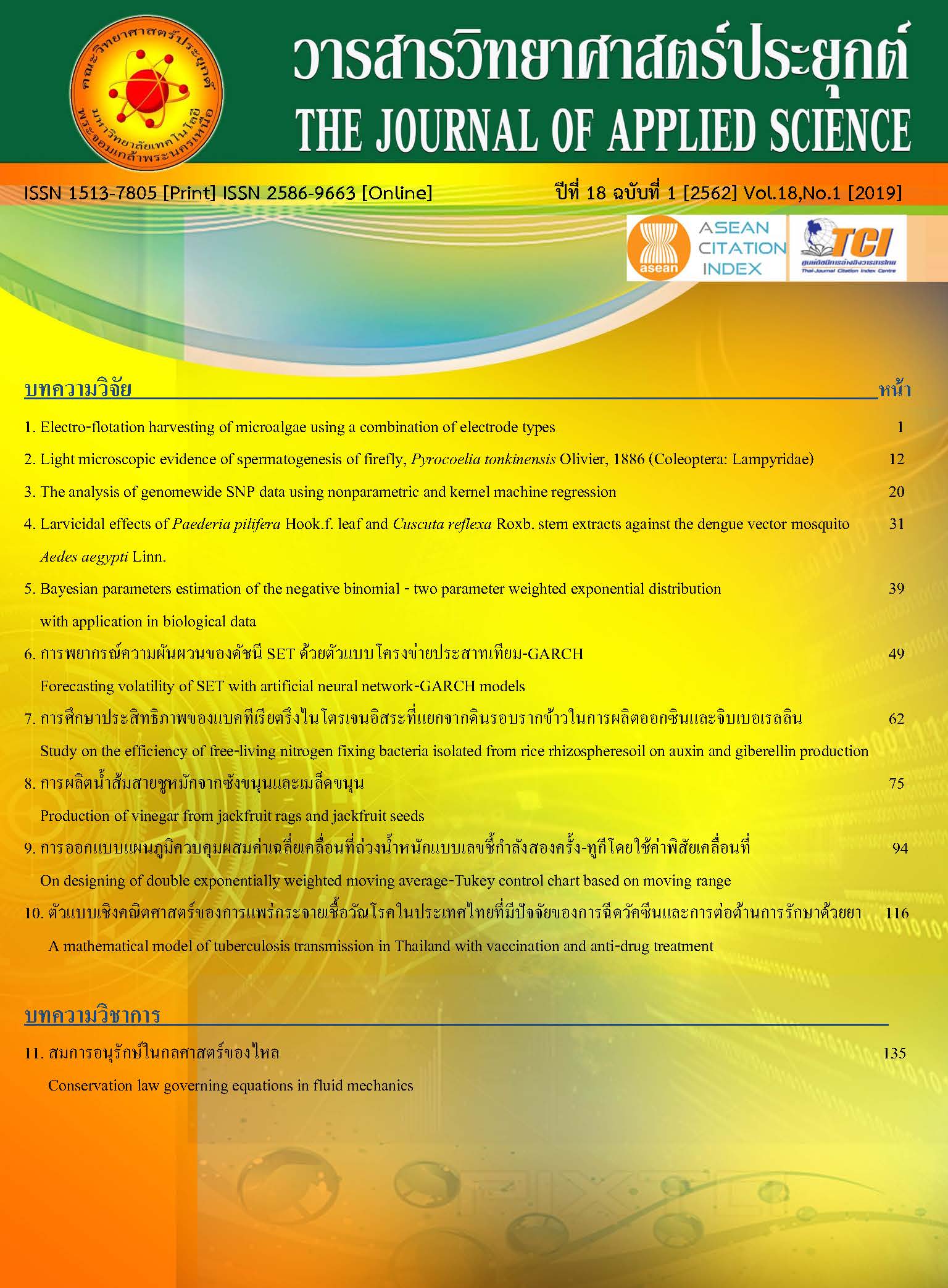Production of vinegar from jackfruit rags and jackfruit seeds
Keywords:
jackfruit rags, jackfruit seed, vinegarAbstract
Jackfruit rags and jackfruit seeds contain 19.77% ±0.57 and 38.26% ±0.41 of carbohydrate, respectively. This was the main component which can be enzymatically digested into reducing sugar and used as a raw material for vinegar production. In this research, the jackfruit rags and jackfruit seeds were digested with enzymes at various concentrations. It was found that the digestion of the fibrous material of jackfruit with 0.004% cellulase at 50oC, pH 5.0 for 240 min gave the highest amount of reducing sugar at 6.3 g/l. Whilst the jackfruit seeds were digested with 200 µl of alpha-amylase at 90oC, pH 6.0 for 180 min and further reacted with 400 µl of glucoamylase at 60oC, pH 4.5 for 360 min provided maximum 15 g/l of reducing sugar. The optimal amount of jackfruit seeds for the highest reducing sugar production was 60 g / 100 ml, in which released 50.276 ± 1.418 g/l reducing sugar. The enzymatic digested rags and seeds were then fermented with 4% Saccharomyces cerevisiae TISTR 5049, the ethanol yield was 10.4% and 11.4%, respectively. Thereafter 10% Acetobacter aceti TISTR 354 was utilized to convert the ethanol to acetic acid. The amount of acetic acid derived from those of jackfruit rags and seeds within 7 days was 4.5% and 5.2%, respectively. The properties of the vinegar fermented from fibrous materials and seeds of jackfruit were analyzed. It was found that calcium and magnesium contents were high. In addition, it contained vitamin C and antioxidant activity. Therefore, a drink from such vinegar was developed. The sensory quality test showed that adding honey had the highest score of the overall acceptance. As for the development of other products, the salad dressing received the most acceptable on the taste and overall likeness when compare to chili sauce and pickled chili.


